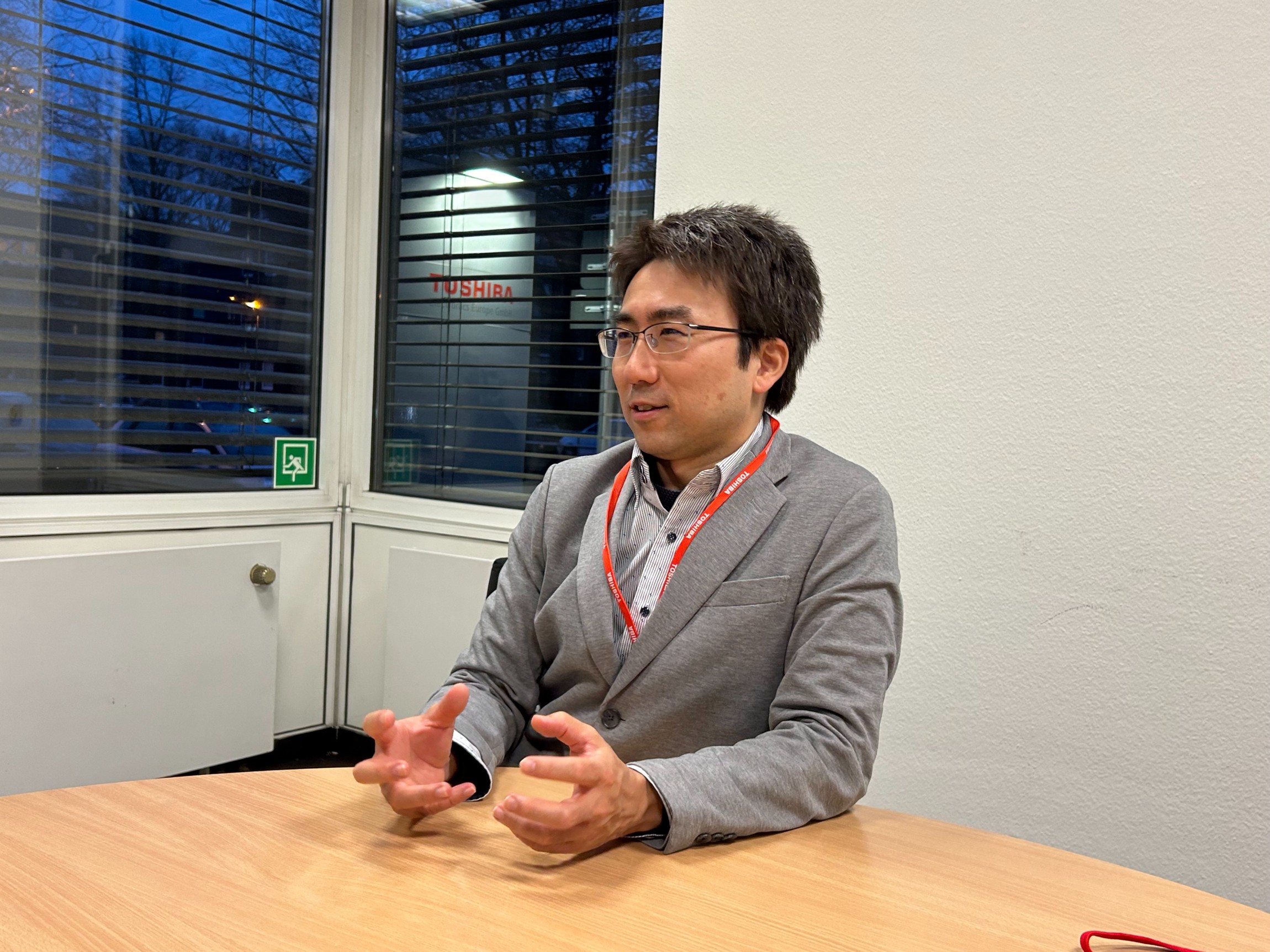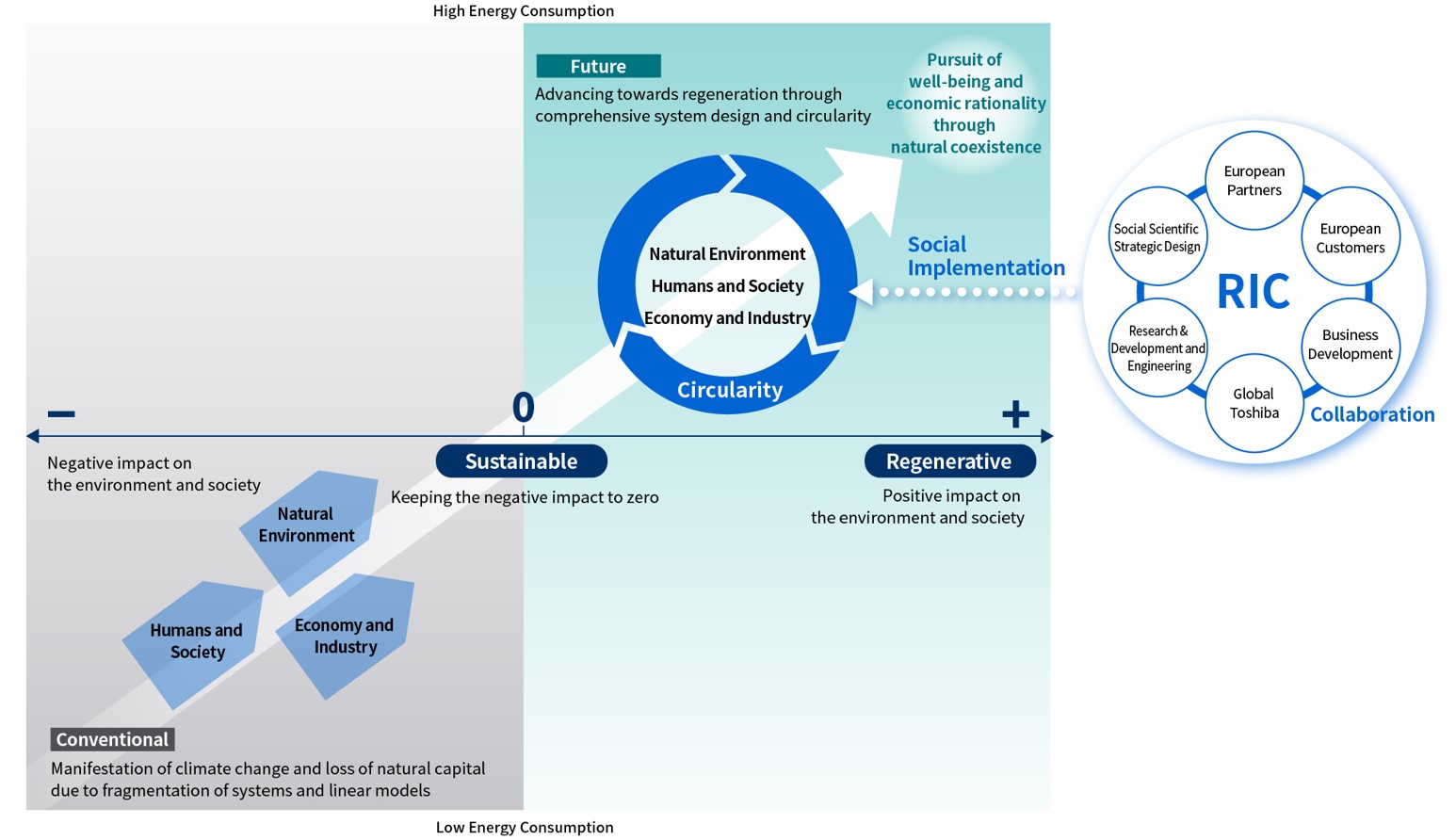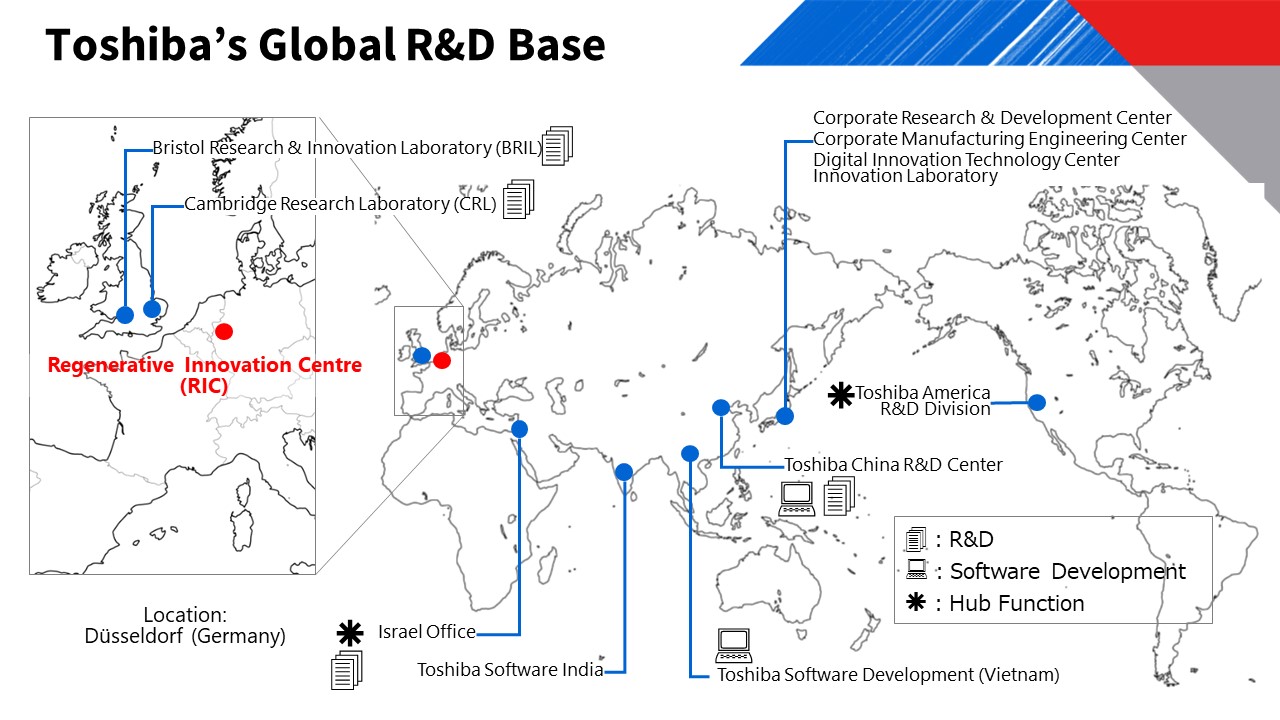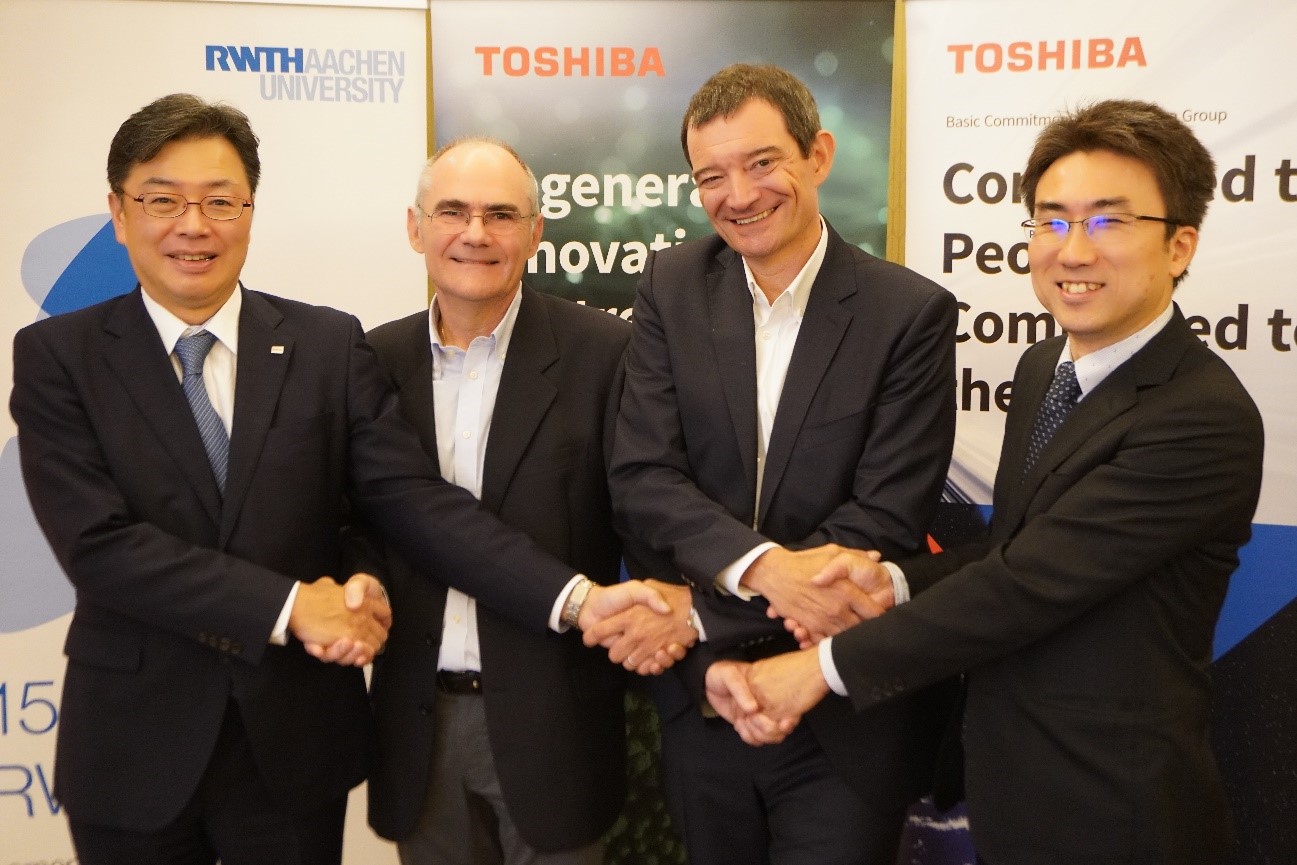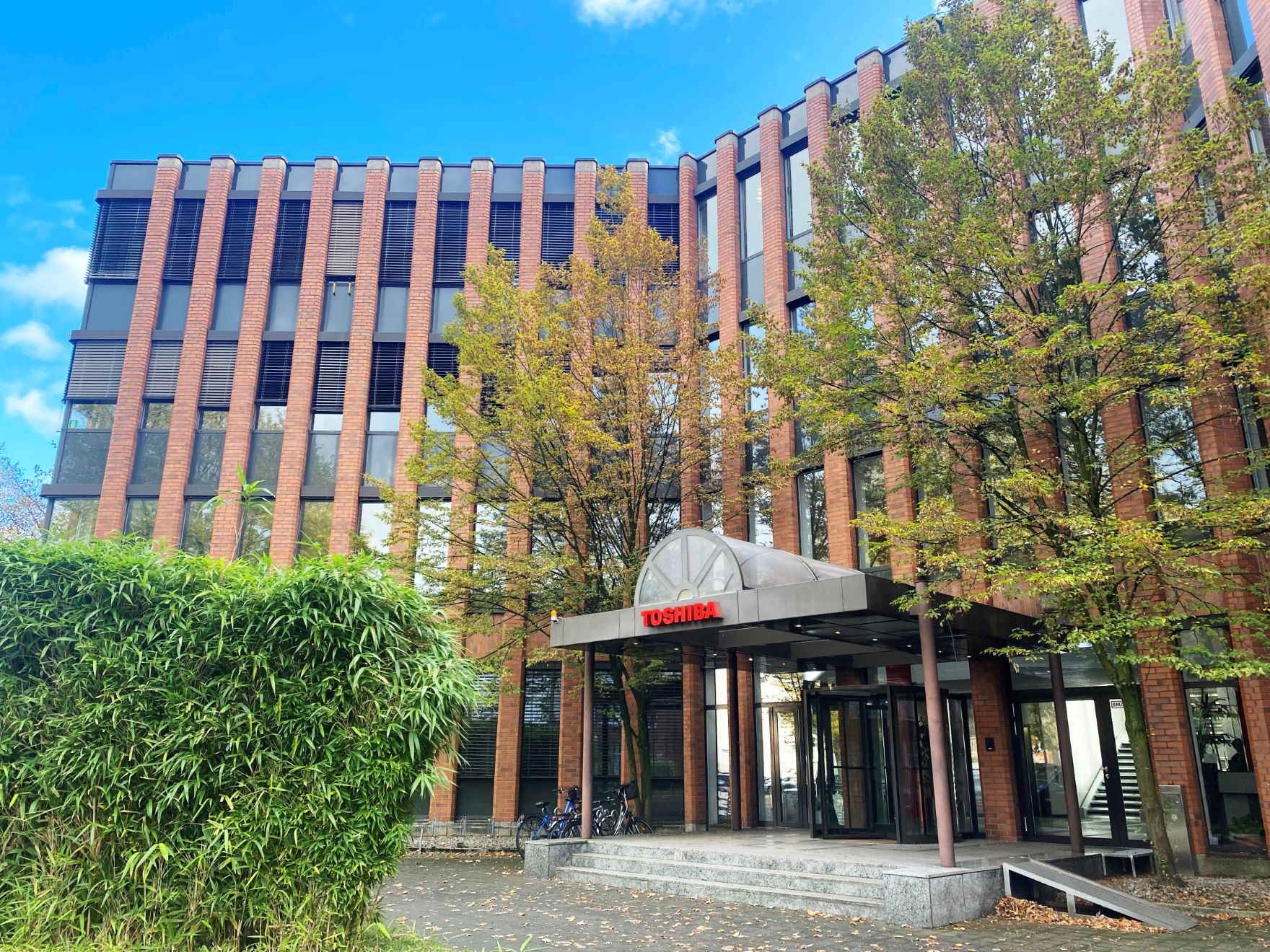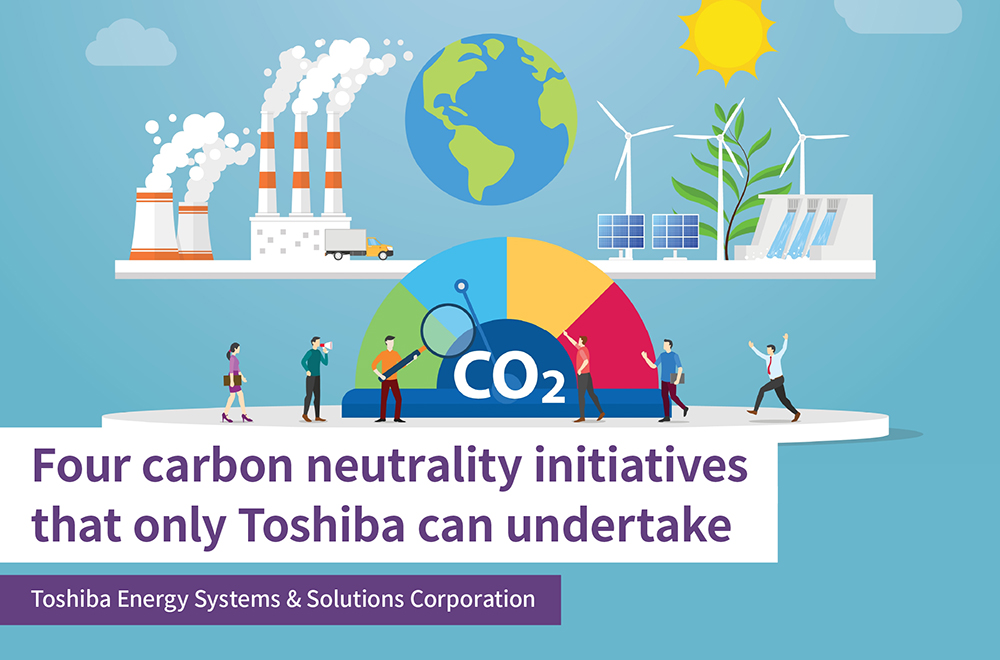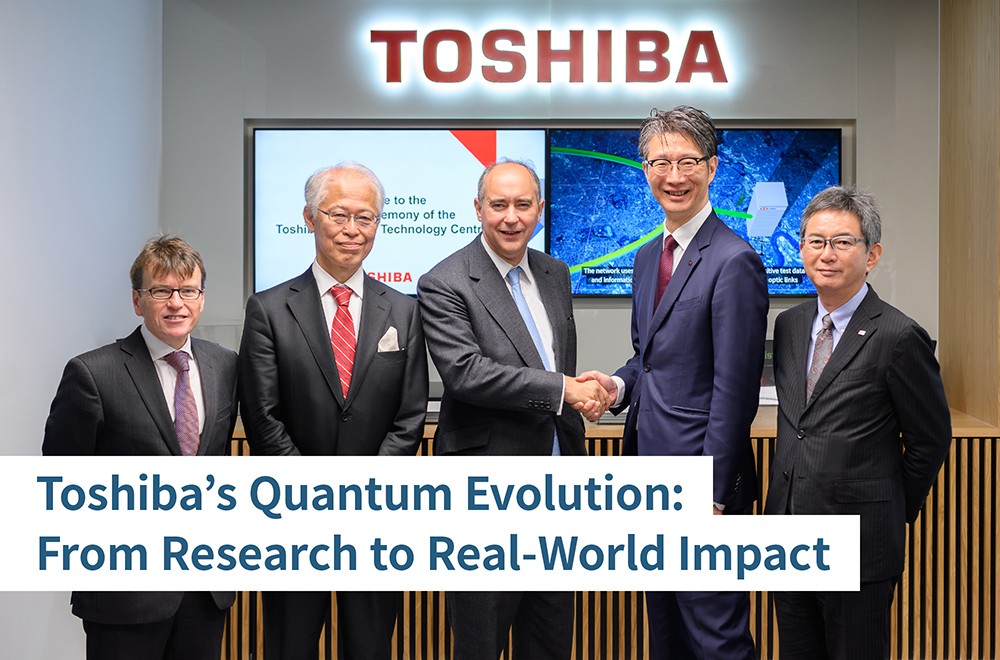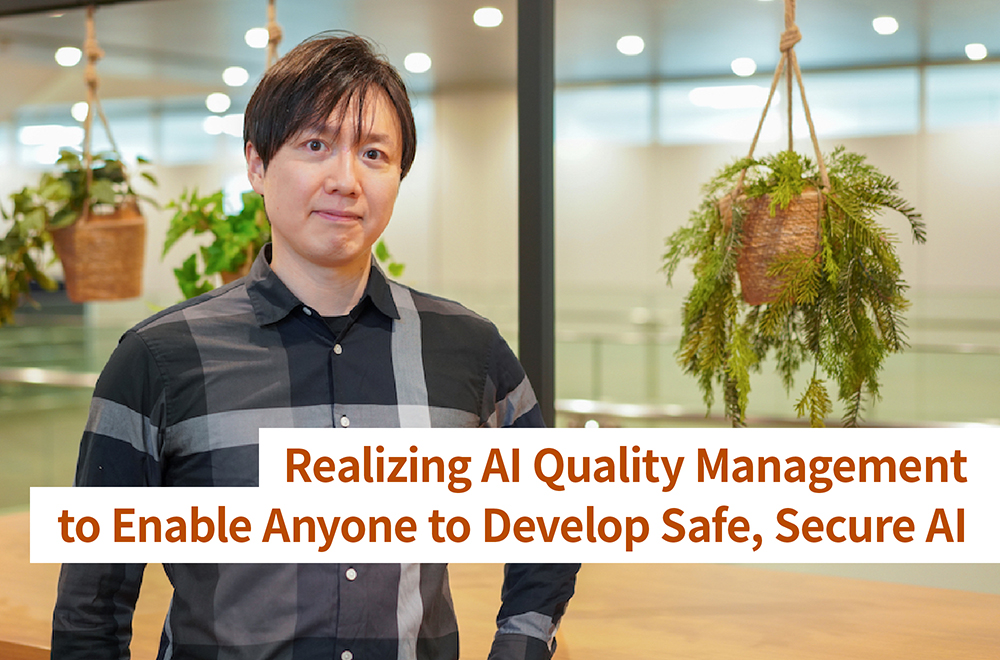Regeneration in Action: Toshiba’s European Innovation Hub Leading the Way
2024/05/17 Toshiba Clip Team
- Toshiba establishes a new innovation hub named “Regenerative Innovation Centre (RIC)” in Germany
- Toshiba collaborates with the European community to accelerate the implementation of advanced technologies
- The initiative aims to integrate various disciplines and fields based on technology to create new value
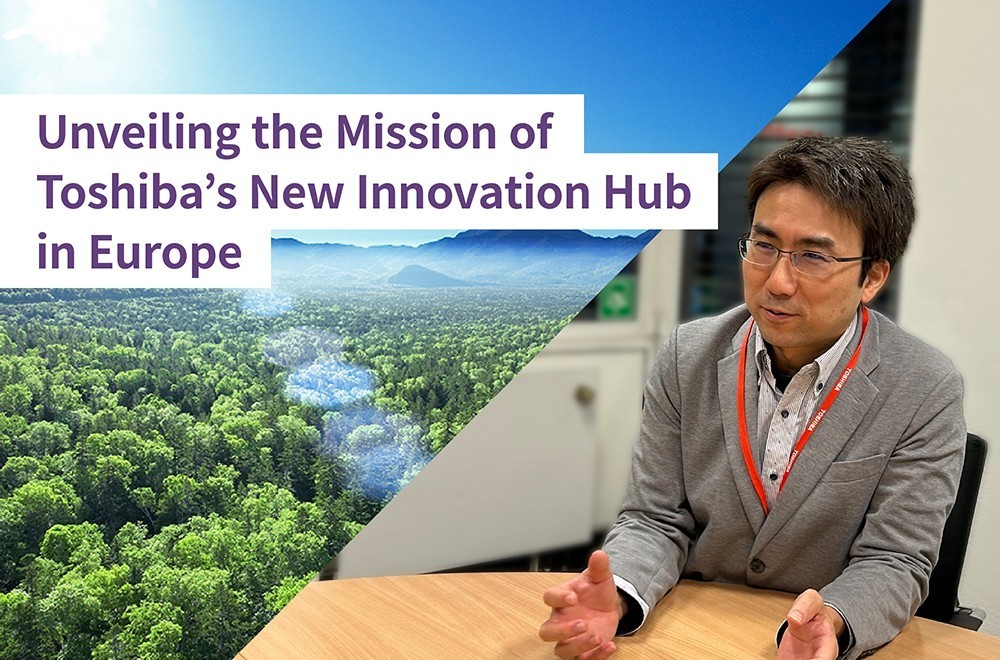
Toshiba’s rich 150 year history in technological development has been characterized by constantly tailoring its innovation and solutions to address wider societal issues. In September 2023, Toshiba took another step forward for this vision by establishing its Regenerative Innovation Centre (RIC) in Düsseldorf, Germany. This strategic move aims to expedite Toshiba’s engagement in development and demonstration projects concerning carbon neutrality and the circular economy, fostering collaboration with European communities.
Kohei Onizuka, Deputy Managing Director at Toshiba’s Bristol Research and Innovation Laboratory, an industrial research center in the UK, was assignment to open the new technology hub. The creation of the RIC forms an important part of Toshiba’s value and contribution to global society Onizuka shares his thoughts on the significance of establishing this new innovation base in Europe.
Kohei Onizuka, General Manager of Regenerative Innovation Centre (RIC)
Breaking Ground in the European Market with the “Regenerative” Concept
“Regenerative” may be a rather new term for many, but a concept that has gained traction in Europe as a way to encompass positive initiatives that go beyond sustainability, by integrating business, innovation, and design to advance toward the creation of the next-generation society.
RIC’s Concept of ‘Regenerative’
“The risks of climate change and loss of natural capital are becoming increasingly apparent. Considering the negative impact that society has had on the Earth’s environment already, we believe the idea of sustainability alone is no longer sufficient to fundamentally resolve these issues. Regenerative thinking involves reversing the negative effects on the Earth’s environment and society, bringing about positive change and improving conditions. That’s the concept of regenerative,” says Onizuka.
Toshiba believes in the potential of its technologies and innovations, developed through years of manufacturing, to contribute to the regeneration process. From RIC, Toshiba plans to accelerate efforts towards carbon neutrality and the circular economy. Crucially the ‘C’ in RIC signifies ‘Centre’, which embodies our aim to create a collaborative space and build a culture dedicated to positive change. RIC serves as a platform where Toshiba’s engineers, researchers, and designers, along with our European partners, can come together to bridge national and departmental divides fostering meaningful collaboration.
Venturing into the European Market
In 2022, Onizuka became Deputy Managing Director at Toshiba’s Bristol Research Institute in the UK, leading the launch of the RIC initiative. This prompts the question: why establish a new base in Europe when Toshiba already has a global R&D presence across various locations?
Toshiba’s Global R&D Base
“EU countries are considered leaders in setting global standards, due to a well-established support systems, substantial funding and strong policy backing. As a result, Europe stands at the forefront of addressing global challenges, making it an ideal environment to foster innovation”, says Onizuka.
Europe plays a key role in shaping policy related to climate neutrality that impact countries outside EU, such as the Carbon Border Adjustment Mechanism and EU battery regulations. On top of this, it also offers ample investment opportunities, especially in areas such as ESG investments, and strongly supports initiatives like the European Green Deal. Technologically speaking, it’s also a key hub for innovation, providing an environment conducive to developing both hardware and digital technologies. As for Toshiba, the decades of IT research and development experience at its UK labs, fits well into this landscape.
Onizuka also emphasizes the culture of cooperation and collaboration in Europe. “Social implementation models originating in Europe are reputed for their ease of deployment in other regions, presenting significant advantages as a ‘learning ground’ for global businesses. Through 1.5 years of preparatory communication with various entities that led to the establishment of RIC, I encountered the spirit of cooperation and co-creation in the region, reflecting Europe’s inclusive approach to engaging with diverse stakeholders from different regions, companies, and institutions.
It’s also interesting that there are proactive measures to mitigate risk by fostering collaboration among multiple companies and institutions in the development and implementation of new technologies. This approach prompts me to consider what benefits we can offer to our partners and society, rather than solely focusing on the advantages for our own business.”
RIC’s Challenge to Spark Societal Change
Toshiba’s has an unwavering commitment to building a sustainable society and improving the environment. RIC is at the forefront of developing technologies and solutions that advance carbon neutrality and promote a circular economy, applying them to real-world scenarios. Collaboration with partners is pivotal in developing these initiatives and generating a tangible and positive impact on both society and the environment.
RIC encompasses candidate technology areas such as devices, energy, and data sharing. Notable technologies include “Distributed Energy Resources,” pivotal for advancing renewable energy adoption and ensuring stable electricity supply. “Power Electronics” contributes to optimizing electricity usage, while “Fast Charging Batteries” are essential for the continued proliferation of electric vehicles. Technologies such as “Power to Chemical (P2C)” and “Hydrogen Production with less use of iridium”, are also highlighted for their potential impact on sustainable energy production and usage.
All of these core technologies related to carbon neutrality and the circular economy are gaining significant global interest. Toshiba excels in P2C and hydrogen production technologies, and we are further advancing and scaling up demonstrations, establishing manufacturing lines, and developing infrastructure to support these initiatives.
RIC has proposed multiple demonstration projects to the European Commission, demonstrating our commitment to technology demonstration, standardization, and collaboration.
“While there were some projects that unfortunately didn’t receive approval, we remain dedicated to building relationships with several universities and institutions to propose new initiatives. We are fortunate to have Professor Antonello Monti of RWTH Aachen University and Professor Stephan Ramesohl of Wuppertal Institute for Climate, Environment and Energy as valuable advisors. Their expertise strengthens our ability to propose and implement joint projects focused on technology-based demonstrations. With their collaboration, Toshiba is steadily gaining recognition within the European tech community for its leadership in carbon-neutral technology fields.
At the RIC opening ceremony (from left: Yutaka Sata, Corporate Senior Vice President CTO, Toshiba Corporation; Prof. Antonello Monti, RWTH Aachen University, Dr.-Ing. Stephan Ramesohl, Wuppertal Institute for Climate, Environment and Energy, and Kohei Onizuka, General Manager of Toshiba RIC)
Through conversations and proposals with partners, Onizuka recognizes for solutions to truly be regenerative, they require the integration of all elements within societal systems, not solely technology. To expedite their implementation, it’s crucial to fuse knowledge from diverse fields like economics and sociology. This interdisciplinary approach is vital for ensuring the holistic transformation needed to achieve sustainable and regenerative outcomes.
“RIC serves not only as a research and development hub but also as an innovation center dedicated to implementing technology that will benefit society. It serves as the catalyst for societal implementation and change, focusing on innovation aimed at regenerative solutions, encompassing not only technology but also systems thinking and design thinking.
In addition to engineers, RIC requires individuals who can research societal trends, conceive business concepts, and drive commercialization. This interdisciplinary approach allows us to leverage insights from economics, policy, and human behavior, ensuring that our solutions are holistic and effective. As we experiment, learn, and evolve, we will continuously design and update our organization to remain agile and responsive to the dynamic challenges of societal implementation and change.”
Winds of Innovation Blow From RIC to the World
As RIC engages with the European community, it seamlessly integrates Toshiba’s diverse skills and talents from around the world, fostering rapid collaboration.
We seek individuals who can utilize management and organizational theories to bolster innovation and speed up the rate of change. Whether top-down or bottom-up, members progress by setting individual goals, resulting in organizational transformation. This may lead to the emergence of a completely new form of autonomous and decentralized organization.”
In addition to addressing carbon neutrality and the circular economy, there are numerous global challenges are ahead of us to tackle. Therefore, RIC will continue to communicate and collaborate with partners, brainstorm ideas and implement solutions. When this positive cycle begins, innovation winds will blow from Germany to the world”, says Onizuka.
“We will leverage Toshiba’s developed technologies and resources to build on successes; then, by employing a backcasting approach from a macro perspective, we will contribute to the global community by addressing societal issues. I firmly believe that by turning both these wheels, RIC’s mission can be accomplished. Throughout this journey, we will foster connections with partners and stakeholders, to guide RIC in the right direction.”
Toshiba’s Düsseldorf Base and Offices of RIC
*Photo provided by Toshiba Electronics Europe GmbH (TEE)
As we embark on this unprecedented journey from sustainability initiatives to regenerative societal implementations, our guiding vision will prove invaluable. Onizuka reaffirms our philosophy: Committed to People, Committed to the Future.
“In launching RIC, we reiterated our philosophy with the team. It encapsulates our goal and vision perfectly, almost as if tailor-made for RIC.
When contemplating regeneration, the Earth naturally comes to mind first. However, it’s crucial to recognize that human activities emit greenhouse gases contributing to climate change, and a well-designed circular economy to combat these emissions hinges on human ingenuity. Regeneration must consider both people and the Earth as interconnected elements. We steadfastly adhere to our principles and engage in co-creation earnestly. We believe that within this ongoing commitment and endeavor lies the future of carbon neutrality and the circular economy.”
![]()
Related Links
*This section contains links to websites operated by companies and organizations other than Toshiba Corporation.
Toshiba Establishes "Regenerative Innovation Centre" in Germany | News | Toshiba





